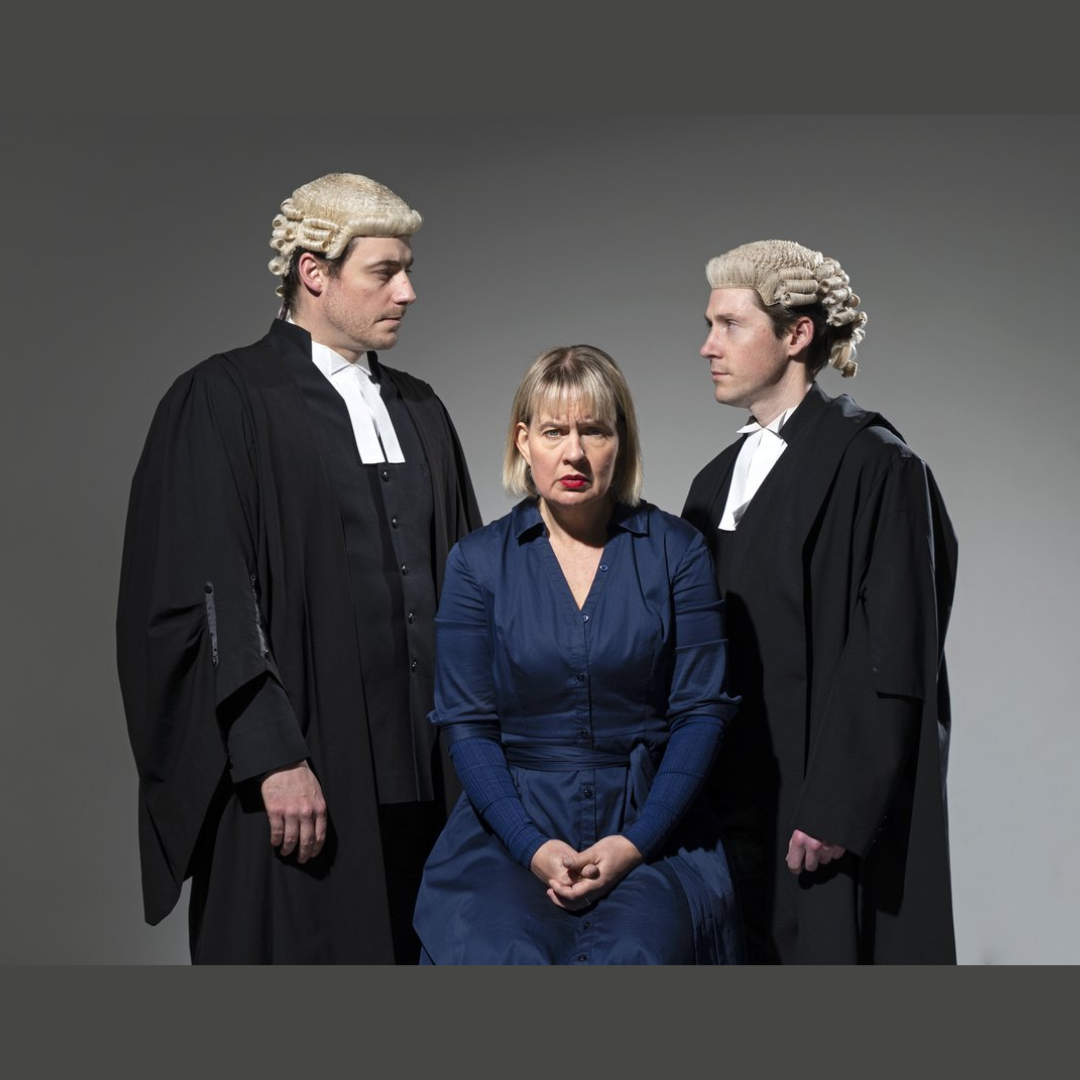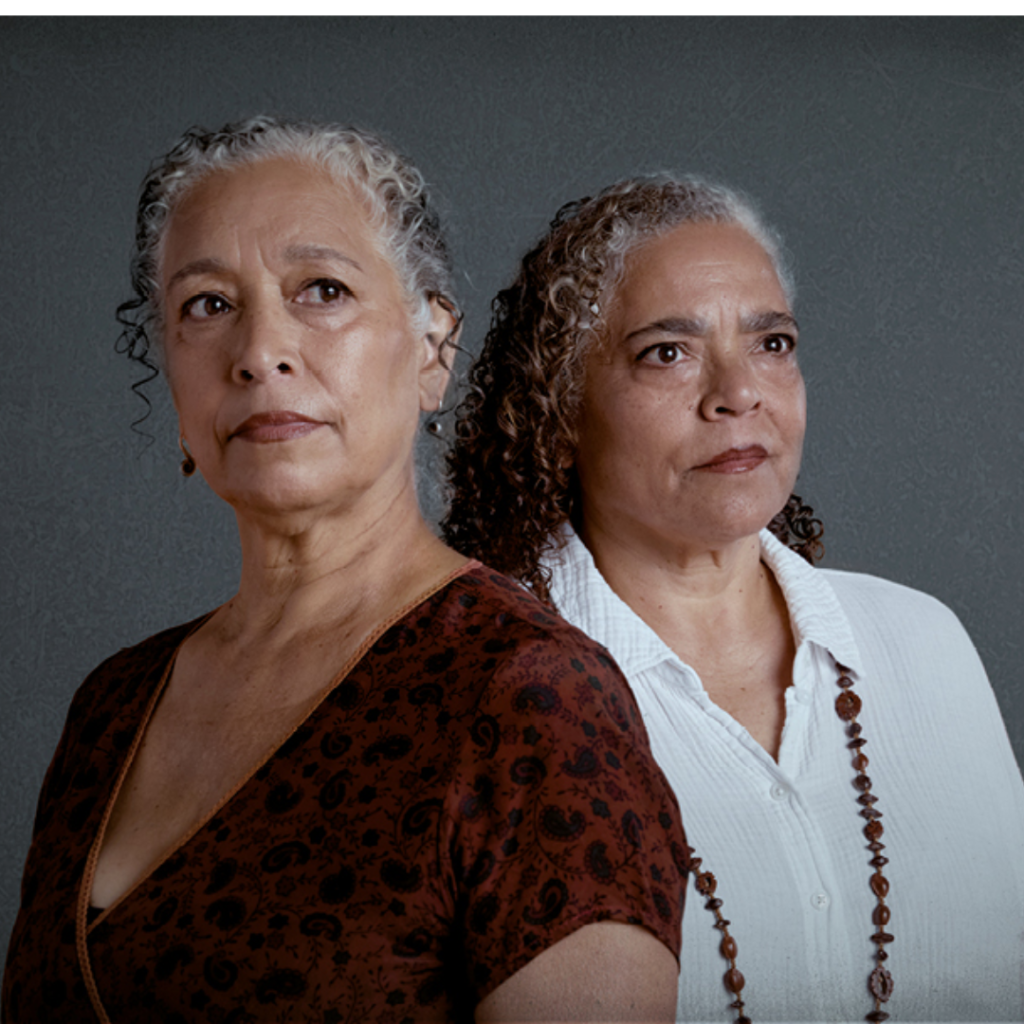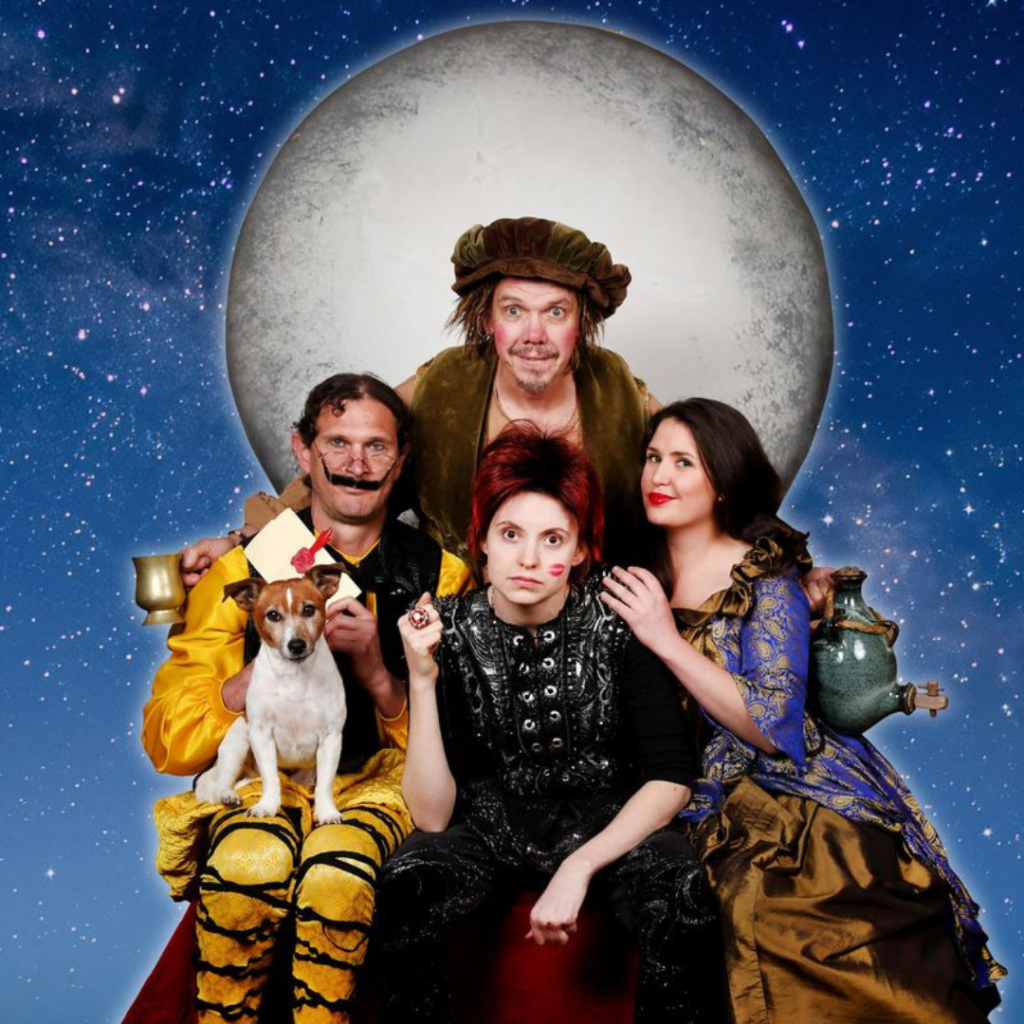
What constitutes sexual assault and how difficult is it to prosecute? That is one of the key questions asked in the dramatic, at times comedic, work by English writer and director Nina Raine, published in 2017. Set in present day London, Raine was inspired to write the play after hearing criminal barristers talk about their cases.Friends and litigators Ed (Samuel Rogers) and Tim (Tom Carmody) take opposing briefs in a sexual assault case. It is one in which a traumatised Gayle (Kyle Weston-Scheuber) claims she was raped. Gayle, understandably, wants justice to prevail, but will it?
Ed is self-assured and confident, someone that can use the law and readily twist the truth to suit himself. He is married to literary agent Kitty (Jessica Symonds). A matter of weeks ago, she gave birth to their first child, the only one she wants, although that is not the case for Ed. His best mate is fellow legal eagle Jake (James Plunkett), a notorious womaniser, married to another member of the fraternity, Rachel (Rachel Delaney). The pair has two young children.
Also in their circle is barrister and singleton Tim, who they are trying to match with another friend, namely actress Zara (Laura Elliot), whose biological clock is ticking.

What becomes clear is that both Ed and Jake’s marriages are hardly on solid ground and their wives’ tolerance is at breaking point. Faithfulness is a key theme. Before this is over, the concepts of truth and consent will be tested. With no shortage of choice one liners, Consent is a production that gains momentum as it progresses. It explores the idea of open and closed questions in a legal and personal context.
With rich and raw language, my mind turned to a quote attributed to 19th century Scottish author Sir Walter Scott. In his poem Marmion, he wrote: “Oh, what a tangled web we weave, when first we practice to deceive!”

The respective personalities of the key players are well established by the eight-strong cast, which also includes Emily Porter SC as divorce lawyer Laura. Among the standout performers is Jessica Symonds as Kitty, who comes into her own in Act II. Class distinction between Gayle and the relatively well-heeled attorneys is immediately evident.
Set changes are frequent, little more than the odd table and chairs, a couple of armchairs and a small sofa. The focus is on the verbiage and interchanges between friends and combatants, with the action ramped up after interval. The opening act runs for 90 minutes and the second act 50 minutes. Blackouts between scenes are filled with effective music stings.

Nicky Neville-Jones shows dexterity in direction, drawing us into the tangled web that is at the heart of Consent. If morality was to be called into question, then there would be a surfeit of guilty verdicts, but the law enables what can be best termed work arounds. On the personal front, these so-called friends and lovers play hardball and how, until their vulnerable underbellies are exposed.
I found Consent disturbingly alluring and devastating, as if having a front row seat to a metaphorical car crash. It is playing at Chapel Off Chapel until 9th November, 2024.










